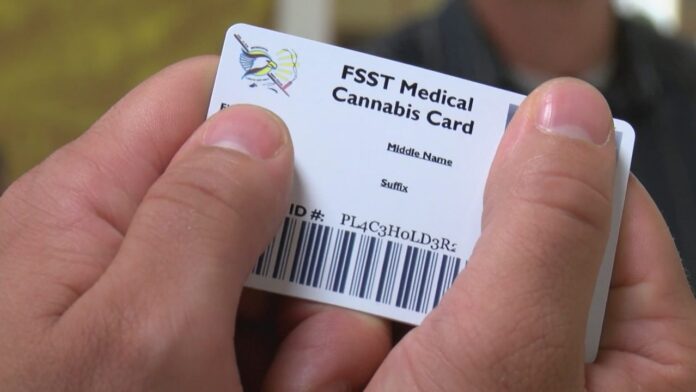Before obtaining a medical marijuana card, you must meet with a qualified medical provider (QMP) registered with Utah. A QMP can be a regular MD, osteopathic doctor, Advanced Practice Registered Nurse, or physician assistant.
Access to a Wide Range of Products
Medical cannabis can help a wide variety of patients. Some common conditions that can be treated with this medicine include chronic pain, nausea, and cancer. But, research is being done to see if it can be helpful for many other ailments that people suffer from around the world. When someone gets a Utah medical cannabis card, they can buy products from any of the state’s licensed dispensaries. They can purchase edibles, beverages, vape products, and more. They can even find companies offering different cannabis products based on specific strains. In addition to finding quality products, patients who have a cannabis card can also get lower prices when they shop. This is because they can buy in bulk, meaning each product costs less. This can make a big difference in the price of medical marijuana. Another benefit of having a cannabis card is that it can protect you in some ways from being arrested for possession of marijuana. While it is still illegal in Utah, some prosecutors will offer people with a Medical Marijuana Card a plea deal that allows them to have their charges dismissed after a year.
Lower Costs
Medical marijuana is expensive, and the process of getting a card can be expensive as well. First, a patient must find a Qualified Medical Provider (QMP). This is typically your regular doctor, but in some cases, it can be someone like a chiropractor or an acupuncturist who has completed the necessary training.
Once a QMP has determined that a patient has a qualifying condition, they will complete an online application through the Utah Department of Health’s electronic verification system. Then, the patient and their caregiver — if applicable — must pay a fee to the state to receive an official cannabis card. Despite the high initial costs, medical cannabis is an excellent treatment for many patients and can greatly improve their quality of life. It can help reduce chronic pain symptoms, allowing patients to function at work and in their daily lives. In addition, many products are available that can help treat anxiety and sleep disorders.
Fortunately, the initial cost of a Utah cannabis card is decreasing as the program continues to implement new regulations. Specifically, recent changes to the law eliminated the requirement of a 6-month card renewal, saving patients money and time. The new rules allow patients to designate a caregiver to purchase products at the dispensary.
Convenience
Having a Utah cannabis card is the only way to access medical marijuana in the state legally. Without it, you could be fined if you are caught with marijuana. In addition, having a card gives you legal protections that are not available to recreational users.
A wide range of conditions qualify patients to use medical cannabis. The most common is chronic pain. The Utah Department of Health defines chronic pain as pain that has lasted more than two weeks and is not managed by other forms of medication. A card can also help alleviate symptoms of certain types of cancer, PTSD, and severe muscle spasms.
The application process for a Utah cannabis card is straightforward. Once you find a Qualified Medical Provider (QMP), they will create an account on the state’s electronic verification system. They will then complete their portion of the application, which includes their recommendation for your medical needs. Once they’re done, you’ll log back into EVS and pay the $15 application fee online.
Once the state reviews your application, you will receive an email notification that your card has been approved. The turnaround time can vary from person to person but is usually about 15 days. For minor patients, the Compassionate Use Board will review their applications, and a parent or guardian must also get a medical cannabis guardian card to apply on behalf of the patient.
Affordability
A cannabis card will access many cannabis products, including cannabis flowers, THC gummies, oils, and vape cartridges. While some products can be pricier in Utah compared to the rest of the country, the savings the card offers could make it worth the extra cost. Utah has specific laws regarding medical cannabis and requires patients to meet with a Qualified Medical Provider (QMP) to get a Utah cannabis card. To ensure the safety and quality of the program, there is a limit on how many patients a QMP can approve for a medical marijuana recommendation. QMPs spend significant time educating their patients on the benefits of marijuana and how to use it correctly. That can lead to a lengthy appointment and high costs. In addition, insurance does not cover the cost of cannabis, so it is costly for low-income patients.




![(Exclusive) Call of Duty Mobile Apk Download Latest Version [Beta] Call of Duty Mobile Apk](https://androclue.com/wp-content/uploads/2019/05/Call-of-Duty-Mobile-2-100x70.png)
